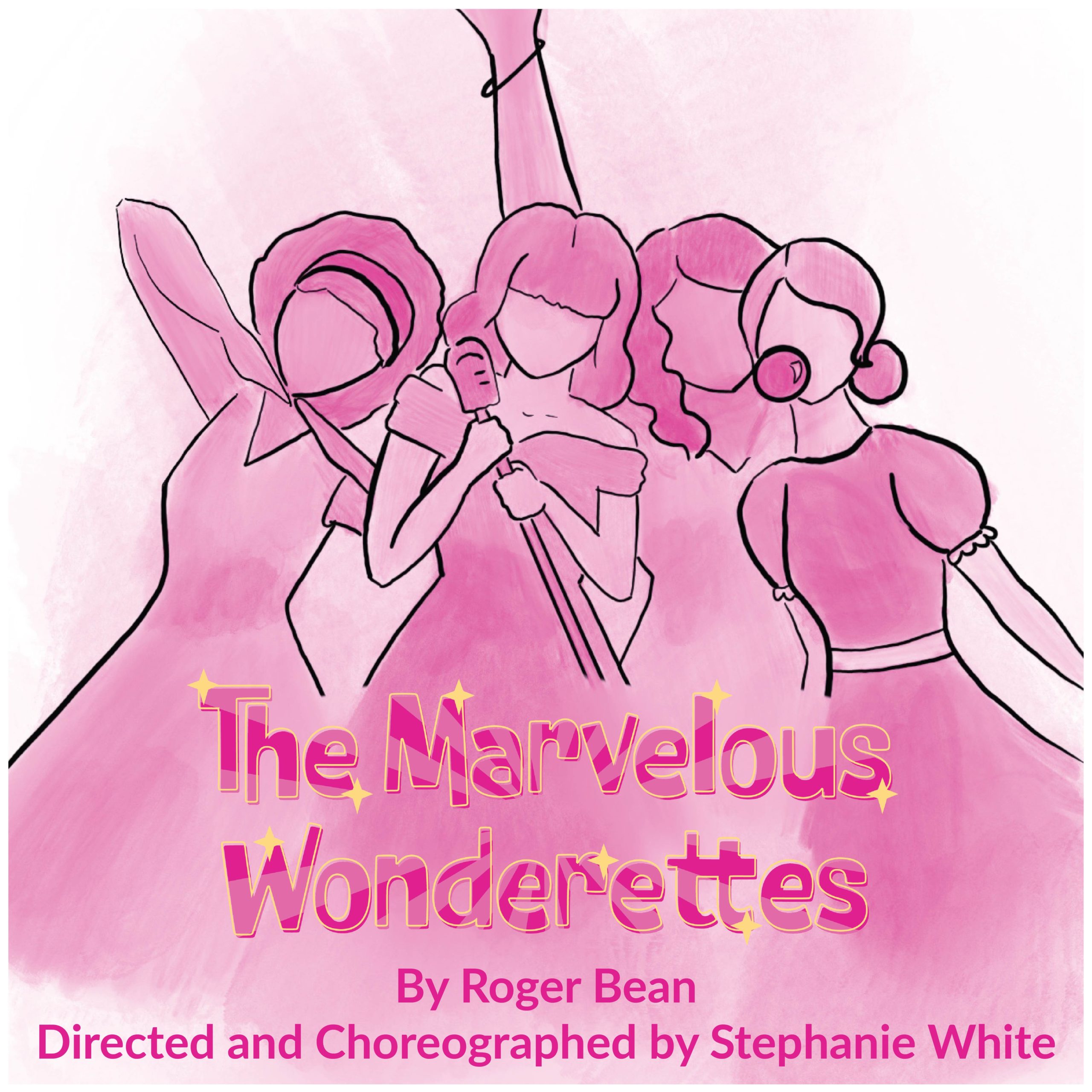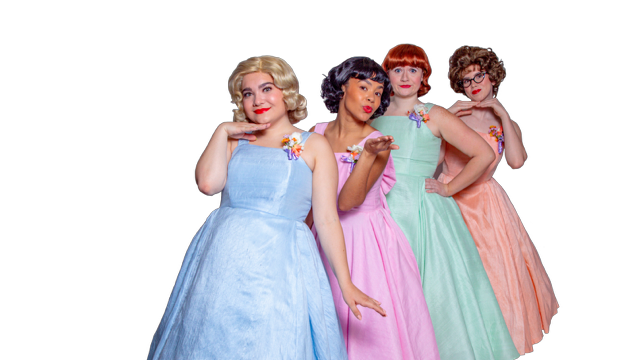LOGAN — It is summertime in Logan, Utah, which means hiking and swimming, and a lot of theatre. Some of that theatre comes from the Lyric Repertory Company, who in partnership with the Utah State College of Arts have been providing shows in repertory for decades at the historic Caine Theatre in downtown Logan, as well as other shows on the Utah State University Campus. Their season started out this weekend with Roger Bean’s jukebox musical The Marvelous Wonderettes, which debuted in 1998. The all-female The Marvelous Wonderettes is almost an answer to Forever Plaid, a show that has, for years, given men an excuse to sing oldies on stage.

Directed and choreographed by Stephanie White, Lyric’s production of The Marvelous Wonderettes is a delightful evening of music and jovial fun. In the first act, four graduating students have the pleasure of singing for their senior prom in 1958. In the second act, the four reunite several years later. The women of The Marvelous Wonderettes have been are a wonderful combination of humor, musical talent, and entertainment.
The stage has been transformed into a 1950s high school gymnasium by set designer Dennis Hassan. The setting was so authentic that I could almost smell the distinct aroma of high school. In the back of the stage was a keyboard, drumset, and bass guitar, and I could hardly contain my pleasure that music director Luke Shepard would also be sitting at the keyboard and providing live music, with Rick Kline on bass and Ben Gittins on drums. The energy and quality that these live musicians add to the production is palpable. The cast also interacts with the musicians, such as one number where the drummer goes off on a riff that would not have happened with a track, and it is moments like this that truly make the need of musicians so vital to a strong musical theatre production.
The cast consists of Kaia Fitzgerald as Cindy Lou, Ashlynn Rober as Suzy, Marin Robison as Missy, and Ariana Whatcott as Billy Jean. My first comment on these performances may sound strange: I appreciated is that these women seemed to be speaking in their own registers, rather than artificially raising their voices to sound more delicate and higher pitched, as frequently occurs in productions of The Marvelous Wonderettes. I noticed this especially in the song “Stupid Cupid,” with lead vocals by Rober. This song is very famously sung in a bit of a childish way, but the director and actor did not choose to do it this way, and I found myself enjoying the song and indeed the production more when I could take the vocals more seriously and not be irritated by fake vocal patterns.
Throughout the production, Billy Jean and Cindy Lou have a bit of a feud, and Whatcott and Fitzgerald play that up quite ingeniously. Both are credited in the program as fight captains, and I enjoyed the physical comedy that they put within the fighting. I have found the storyline of fighting over a guy a bit tired, but the humor used made this more light and fun and less cringe-worthy. Robinson as Missy also added much to the production through her physical comedy skills. One of my favorite things she would do would be to whisper the choreography during several of the songs. Perhaps I enjoyed this because I related to this from my show choir days, but it added a level of awkwardness that was endearing.
There is audience participation, recognizable songs, and other elements of The Marvelous Wonderettes that make it an audience favorite and a good choice for an otherwise heavy season for the Lyric. However, I brought my 16-year-old budding theatre child, and she found some of the storyline dates (especially the song “Mr. Lee” about a crush on a teacher). As music and pop culture evolve, it will be interesting to see how younger generations receive The Marvelous Wonderettes. My daughter (a costume designer) and I really loved the way that costume designer Nancy Hills worked within the show’s historical time period; noticeably, Hills ensured that the characters’ dresses looked like they were made in a home ec class (as stated in the show), rather than by a fancy costume designer. It is little touches like this that make Lyric’s shows stand out.
The strongest part of The Marvelous Wonderettes was the harmonies. The strong four-part harmony of the players were an absolute joy to listen to, and I would have been happy to just listen to song after song, even if no story had been there at all. Indeed, the attention to details in music, acting, and designs makes The Marvelous Wonderettes a great start to the summer theatre season in Logan.
[box]The Lyric Repertory Company production of Marvelous Wonderettes plays various dates at 1 PM or 7:30 PM through July 22 at the Caine Lyric Theatre (30 West Center Street, Logan). Tickets are $15-35. For more information, visit usu.edu/lyricrep.[/box]
